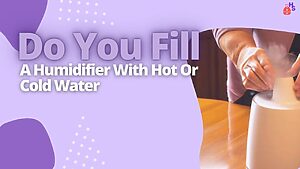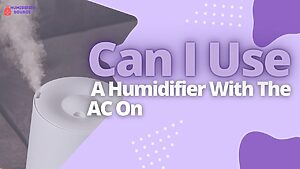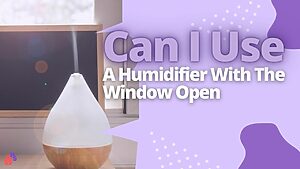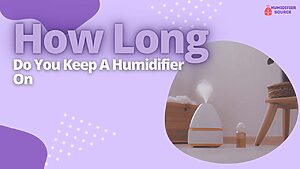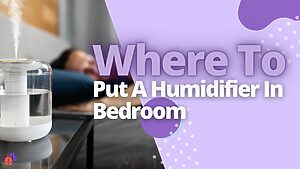If you’re looking for a way to get rid of moisture in your home, you might be interested in a steam vaporizer. But do steam vaporizers work the same as humidifiers?
Have you ever been in a dry house and wished there was some way to add moisture back into the air? Steam vaporizers are an option if this is the case.
As you read this, you’ll learn how a steam vaporizer works and if it’s right for you to utilize it in your home.
Key Takeaway’s
- A steam vaporizer is a device that emits steam into the air and is used to improve indoor air quality or provide therapeutic benefits.
- A humidifier is a device that increases humidity in the air.
- Steam vaporizers and humidifiers are not the same thing, although they both improve indoor air quality.
- Steam vaporizers work by heating water to create steam, which is then emitted into the air. Humidifiers work by adding moisture to the air.
- Both devices can help relieve dry skin, nosebleeds, and congestion due to dry air.
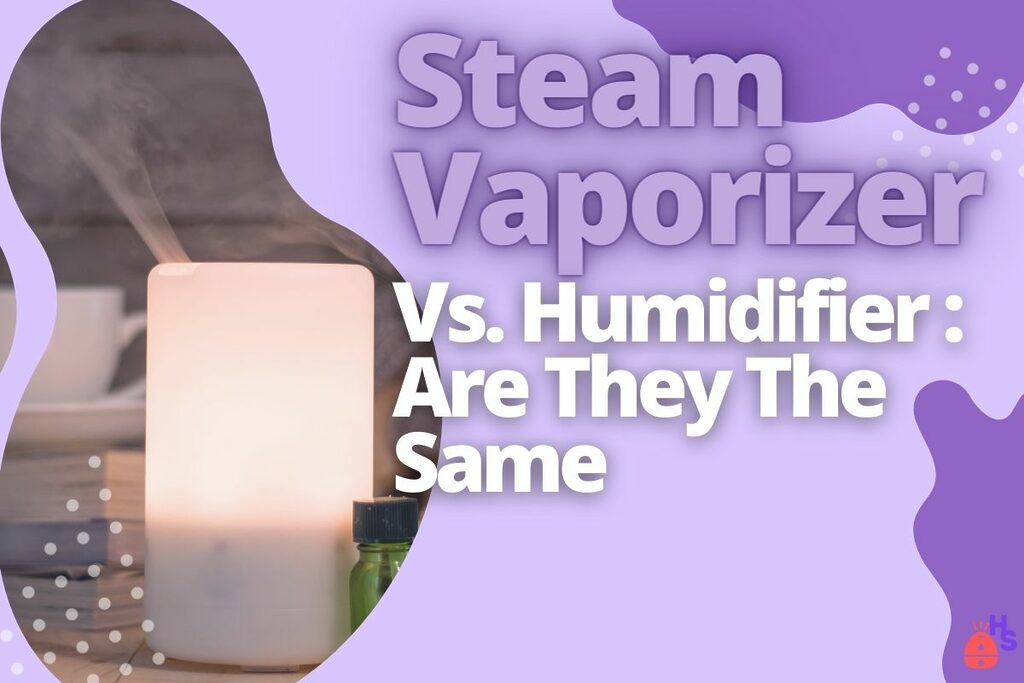
Here’s The Answer To Is A Steam Vaporizer The Same As A Humidifier
A steam vaporizer produces natural steam by heating water to a high temperature. In this sense, it’s the same as a humidifier as both produce vapor.
However, one big difference between these devices is that a humidifier can produce mist without heating the water to a high temperature. That’s why steam vaporizers are sometimes called dry vaporizers.
A steam vaporizer is not the same as a humidifier. While both work by producing mist, steam vaporizers heat the water to a greater degree than a conventional humidifier, making them more effective at relieving congestion and sinus inflammation.
How Do These Two Products Work?
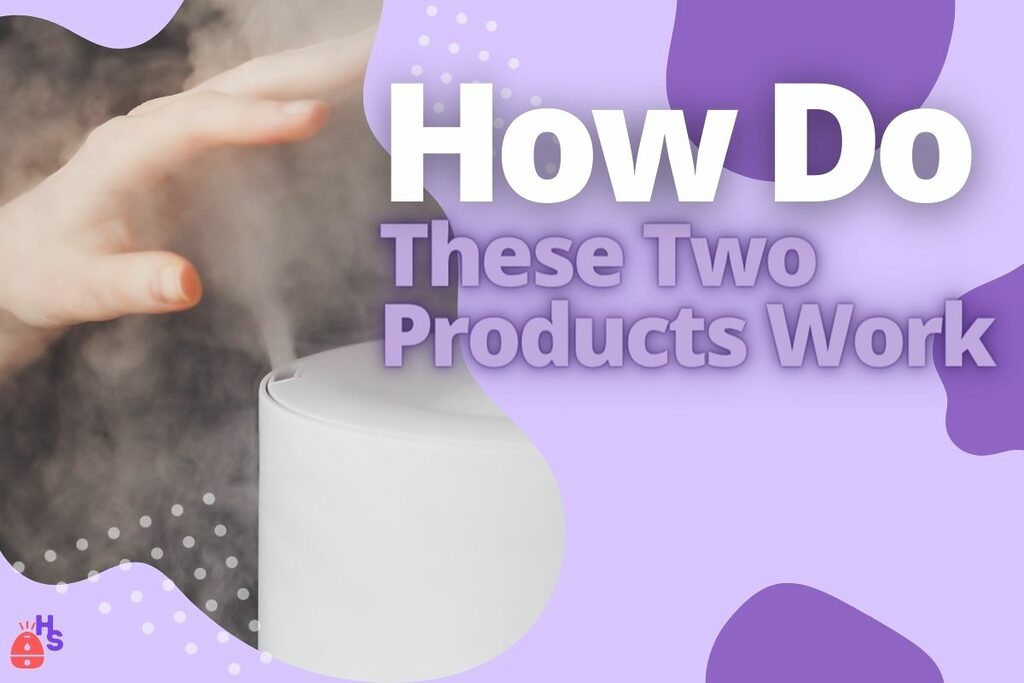
Steam Vaporizer
A steam vaporizer is a device that uses boiling water to create steam, which can then be used to help humidify a room.
The steam vaporizer has a heating element that heats the water to a boiling point and a reservoir that holds the hot water.
Steam vaporizers work by boiling water and then releasing the steam into the air. The steam helps to humidify the air and can also help to loosen congestion.
Vaporizers can be used with essential oils to create a relaxing atmosphere. In addition, the vapor is released into the air, which can help increase the humidity level.
Humidifier
The addition of moisture to the air is how humidifiers work. There are two types of humidifiers: warm-mist and cool-mist.
Warm-mist humidifiers use a heating element to vaporize water. It is then discharged into the atmosphere as vaporized water.
Warm-mist humidifiers are more expensive than cool-mist humidifiers and can be better if you have allergies or respiratory problems.
Cool-mist humidifiers use an ultrasonic nebulizer or a fan to create water vapor. To disperse the evaporated water, the air is subsequently circulated.
Cool-mist humidifiers are less expensive than warm-mist humidifiers and can be a good choice if you live in a warm climate.
Are They Used For The Same Purpose?
A steam vaporizer and humidifier release moisture into the air, but they are not the same appliance.
A steam vaporizer boils water to create steam, which is then released into the air. A humidifier adds moisture to the air without boiling water.
- Both appliances can be used to relieve congestion and coughing, but a humidifier is generally better for these purposes because it does not require boiling water.
- A steam vaporizer can also be used to humidify a room, but it may not be as effective as a humidifier.
- A steam vaporizer produces a stream of hot water vapor, which can help to open up nasal passages and relieve congestion.
- A humidifier, on the other hand, adds moisture to the air. This can help prevent dryness and irritation of the throat and nasal passages.
How Do You Choose Between A Steam Humidifier and a Vaporizer?
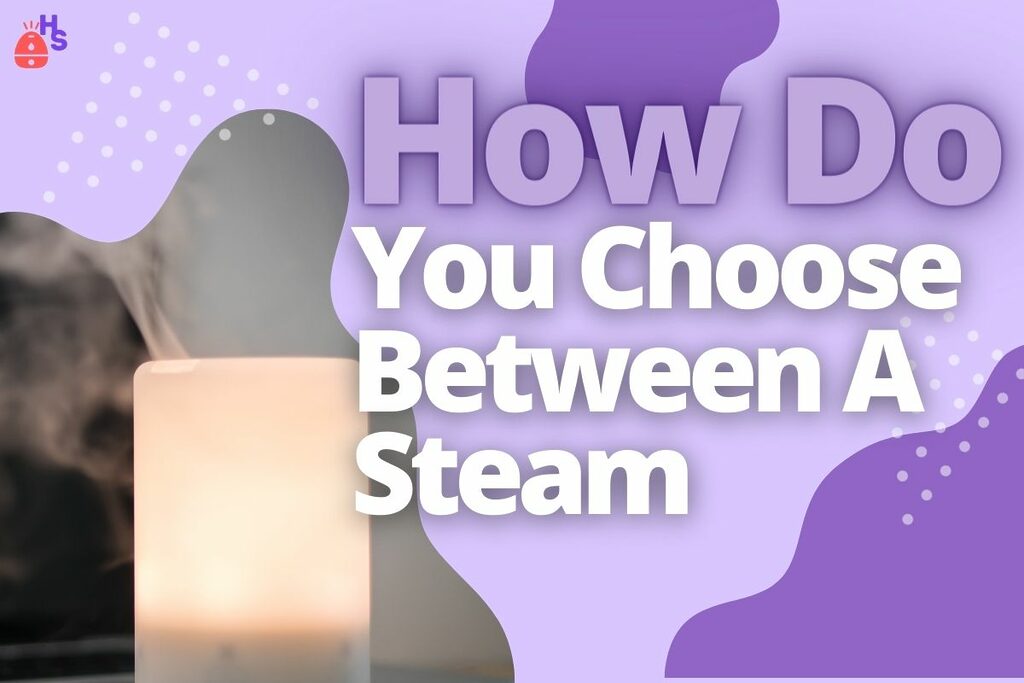
When choosing between a steam humidifier and a vaporizer, there are a few things to keep in mind. To assist you in choosing the right choice for your situation, here are some considerations to consider:
- Mold and mildew can grow in humidifiers, so it’s essential to clean them regularly.
- Vaporizers don’t have tanks of water that can become breeding grounds for germs.
- Steam humidifiers can help ease flu symptoms, while dry air can worsen them as done by vaporizers.
- Coughing and static electricity can be reduced by adding moisture to the air, which is done efficiently by a humidifier.
- Young children and asthmatics may benefit from a humidifier.
It’s time to choose a humidifier. It’s all up to you and what you’re looking for.
If you’re looking for something that is easy to clean and doesn’t have a lot of potential contaminants, a vaporizer may be a good choice.
If you need something that can relieve coughing and other flu symptoms, a steam humidifier may be a better option.
In the end, it’s all about what’s best for you and your loved ones.
Advantages Of Using Steam Vaporizers Over Traditional Humidifiers?
- There are many advantages of using steam vaporizers over traditional humidifiers.
- One advantage is that they are cheaper to operate.
- Steam vaporizers produce vapor much faster than traditional humidifiers and can save you money on your energy bill.
- Another advantage is that they are more straightforward in design.
- Steam vaporizers have fewer working parts and are easier to clean than traditional humidifiers.
- They also do not require filters or other replacement parts.
- Another advantage is that they do not promote mold growth. Steam vaporizers do not provide a place for mold to grow and are therefore a healthier option for your home.
- Finally, steam vaporizers can help relieve congestion. The steam from a vaporizer can help break up mucus and make it easier to breathe.
Advantages Of Using Humidifiers Over Steam Vaporizers?
There are many advantages of using humidifiers over steam vaporizers when trying to improve the indoor air quality of your home.
- Humidifiers are more efficient at humidifying large areas.
- Humidifiers are more efficient in humidifying vast areas than steam vaporizers, which is one of the main benefits of using a humidifier. This is because humidifiers use less water than steam vaporizers.
- Humidifiers do not require as much electricity to run, making them more cost-effective in the long run.
- Another advantage of using humidifiers is that they can help to reduce allergy symptoms. This is because humidifiers help to reduce the number of allergens in the air. Humidifiers can lessen allergy symptoms, including sneezing, itching, and watery eyes, by reducing the number of allergens in the air.
- Lastly, humidifiers can help to prevent dry skin. This is because humidifiers help keep the skin hydrated by increasing the amount of moisture in the air. By keeping the skin hydrated, humidifiers can help to prevent dryness, itchiness, and flakiness.
How Much Do Steam Vaporizers And Humidifiers Cost?
The cost of a steam vaporizer and humidifier can vary depending on the type of unit, the features it offers, and the brand.
A steam vaporizer may cost around $30, while a more advanced humidifier unit with more features may cost $100.
Operational Cost: Steam Vaporizer Vs. Humidifier
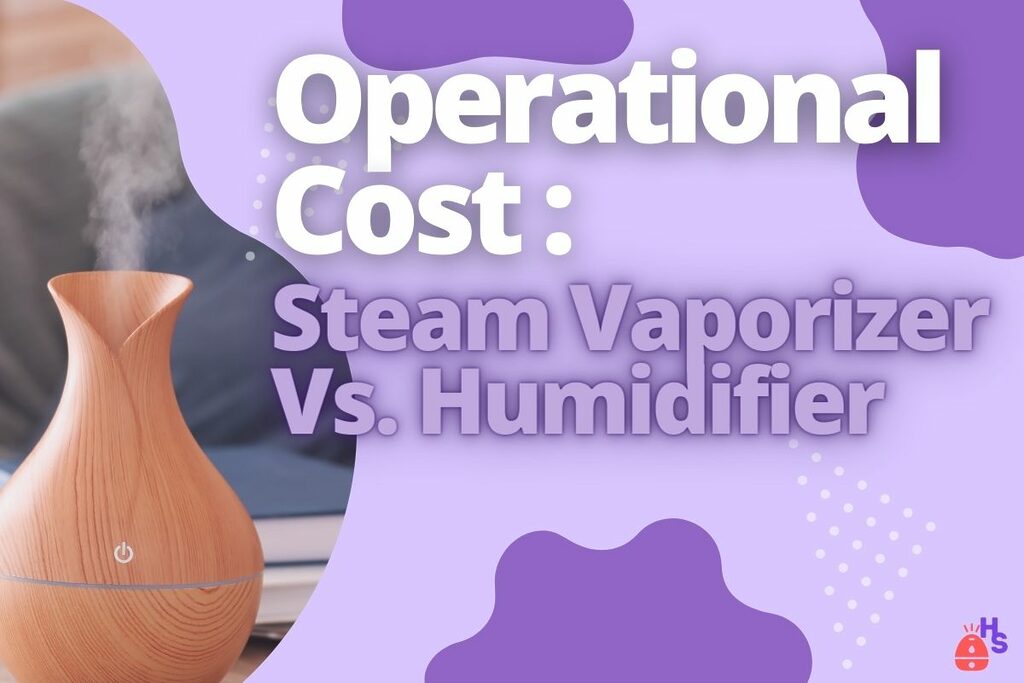
The cost of running a steam vaporizer or humidifier can vary depending on the model and how often it is used.
Generally, electricity to operate these devices is around $0.15 per hour. For example, if you use a vaporizer for 3 hours a day, it would cost you about $0.45 per day or $13.50 per month. If you use a humidifier for 6 hours a day, it would cost you about $0.90 per day or $27 per month.
A small, portable steam vaporizer may cost as little as $20 to operate, while a large, industrial-sized unit may cost thousands of dollars per hour.
Cleaning: Steam Vaporizer vs. Humidifier
When it comes to cleaning, there are a few different ways to go about it. You can either use a steam vaporizer or a humidifier.
Each one has its benefits and drawbacks, so it’s crucial to weigh your options before deciding.
Steam Vaporizer
If you want to get a lot of work done, this is a terrific option. It uses hot steam to kill germs and bacteria, and it can also help remove dirt and grime.
Because it can be drying, you should only use it in a well-ventilated location while applying it.
Humidifier
This is an excellent option if you’re looking for superior humidity. But it is hard to clean without using harsh chemicals.
It is challenging to loosen dirt and grime, making it harder to wipe away. The upside is that it can be cleaned thoroughly and used for longer. It’s an excellent choice for those looking for less regular cleaning.
Noise: Steam Vaporizer vs. Humidifier
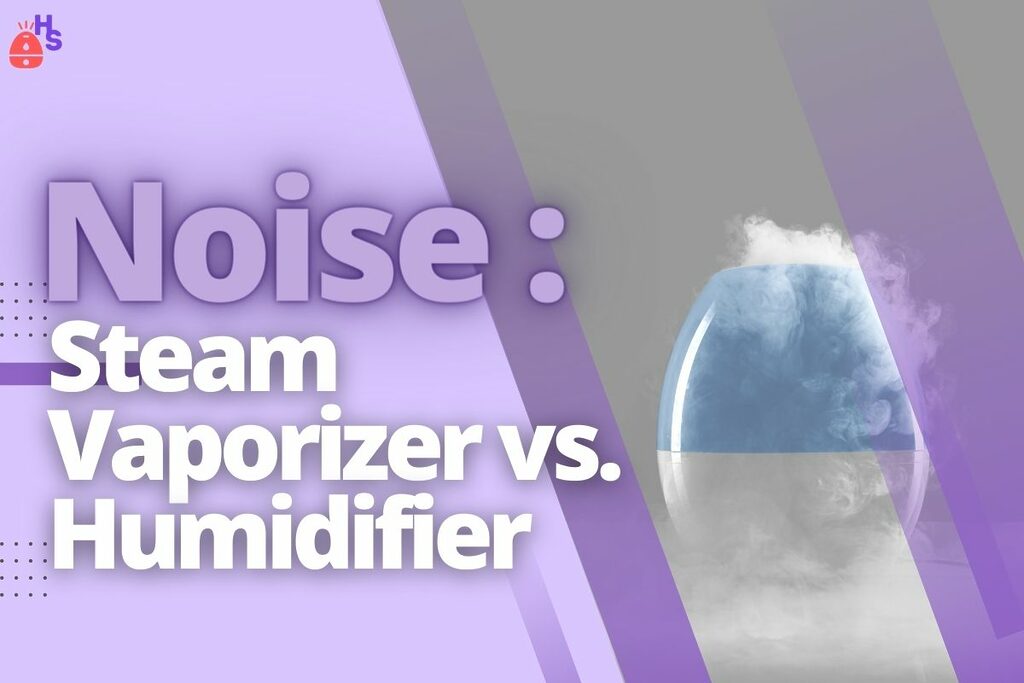
Steam vaporizers and humidifiers are pretty evenly matched when it comes to noise. Both devices use a fan to circulate air, and both can produce a fair amount of noise.
The most significant difference is that humidifiers tend to be smaller and more compact, so they tend to be quieter overall.
On the other hand, Steam vaporizers tend to be larger and bulkier, so they tend to be a bit louder.
However, exceptions to the rule do exist. For example, the noise level varies greatly when it comes to humidifiers and steam vaporizers.
It just depends on the specific model you choose. But in general, humidifiers are going to be the quieter option.
There are ultrasonic humidifiers on the market if noise is an issue for you. These devices use ultrasonic waves to generate mist, which is very quiet.
Which One To Use In Small Spaces Like An Apartment?
If you live in a small space or want to keep your vaporizer as small as possible, then a steam vaporizer is better. They’re generally smaller and lighter than humidifiers, and they use less water overall.
Final Verdict
A steam vaporizer is a humidifier that uses steam to evaporate water from the air. Some common uses for a steam vaporizer are to relieve symptoms of allergies, sinus problems, and asthma and to improve breathing during exercise.
A steam vaporizer works by heating water until it boils, at which point it is released in a vapor form.
So, is a steam vaporizer the same as a humidifier? In short, no. They are two different products with different operational methods.
By reading this in-depth blog post, we hope you can understand the differences between these two products and grasp some insights into how each can be handy in specific situations. Thanks for reading!
Frequently Asked Questions
Can I use both the steam vaporizer and humidifier at the same time?
Typically, you should use one type of humidifier or vaporizer for each room in your home. For example, you should use a steam vaporizer in the bathroom and a humidifier in the bedroom.
Which one is better: steam vaporizer or humidifier?
The two products have different intended uses and benefits. A steam vaporizer is generally more efficient, but a humidifier can be quieter and help moisture levels in the air. If you’re looking for anything specific, it’s up to you to figure out what you need. Thanks for reading!
Why should I use a steam vaporizer instead of a humidifier?
There are a few key reasons why steam vaporizers are better than humidifiers. First of all, steam vaporizers use less water overall. This means that they’re generally smaller and lighter than humidifiers, and they use less energy overall. Second, steam vaporizers don’t cause moisture levels to spike as humidifiers can.
Author
- The Right Way To Fill A Humidifier: Hot Or Cold Water?
- Humidifier And AC: Is It A Match Made In Heaven?
- Can I Use A Humidifier With The Window Open (Solve Your Dilemma)
- Perfect Air Quality: How Long To Run Your Humidifier
- Should You Have A Humidifier In Nursery (The Surprising Benefits)
- Humidifiers In Bedrooms: A Guide To Good Placement


